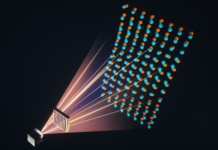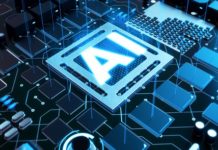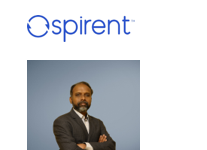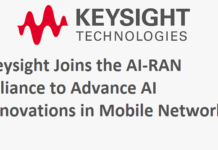
Few things seem more removed from what makes us human than artificial intelligence, its very name a reminder that it imitates a human trait, but is not the real thing.
Yet, in these uncertain times, AI could be the missing element to help bridge the gap between our human need to connect with and understand our world, and the reams of data that help us make decisions about that world and our place in it.
The idea that artificial intelligence can somehow assist in making us more – not less – human seems counterintuitive.
But we see this at work routinely with natural language generation (NLG), a specific field of AI that can transform raw data into an easy-to-understand narrative. What is narrative but a story? And it is through stories that humankind has built cultures, shared information, and passed along knowledge from generation to generation throughout time.
Data wants to tell us stories, too. But many of us struggle to understand those stories when they come in the form of a fever chart or endless rows of numbers in a spreadsheet that demand we piece together the narrative for ourselves as if we were tackling a jigsaw puzzle.
Ultimately, we want to make our decisions based on facts and data, but when swarms of complex charts, graphs and numbers overwhelm us, we are often left dazed, confused and exhausted from the wear on our brains.
That’s where NLG comes in.
NLG software uses language analytics and computational linguistics to “think” like an analyst and act like a writer, highlighting the most important information from a dataset, providing critical insights, and giving meaning to those tabulated reports and visualizations.
Where we feel confused and insecure, NLG can help provide clarity and security. It can do this with data-driven financial reports, product descriptions, medical records, and any other situation where data has a story to tell us.
Look at the reality right now. Government leaders, business owners, and consumers are all inundated with information on a daily basis, yet these reams of data often come to us without context. We can’t take action on what we don’t understand, so data that potentially could help solve a momentous problem for us instead gets filed away in some obscure region of our computer system, forgotten and neglected.
But NLG goes only so far. The algorithms behind the software can provide context to decision makers – but not ultimate answers. Without the human element, the data might just as well have remained hidden away in that computer.
Just as an example, Arria NLG was involved in a project that took statistics related to COVID-19, simplified them and gave them context in a written narrative, making it easier to follow what was happening with trends in the infection rate and the death rate. You could break this information down by country, by state and by county if you so chose.
Yet, artificial intelligence did not make the call on when a community or business was ready to reopen. It did not tell people whether it was time to venture out without a mask or whether it was safe once again to eat in a restaurant. Human beings – for good or ill – had to make those decisions, just as it should be. But people could make more informed decisions because of the work NLG did.
The demand for what NLG provides is on the rise, but as its use grows, don’t expect the need for human input to lessen.
Certainly, the concern that the rise of artificial intelligence risks removing humans from the equation is nothing new, and is the plot of many science fiction tales. As far back as 100 years ago, writer Karel Capek tackled the subject in his play R.U.R., which introduced the world to the term “robots” and involved intelligent human replicas staging a rebellion against their human masters.
Fortunately, the reality of AI doesn’t come with such melodramatic twists, but it is world-changing in its own way.
Instead of making the world a more dire place in which to live, though, NLG offers reassurance, allowing our minds to better understand the complexities that numbers, charts and graphs inevitably bring into our lives.
In these unsettling times, there’s comfort in knowing and understanding those stories your data is trying to tell you.


















